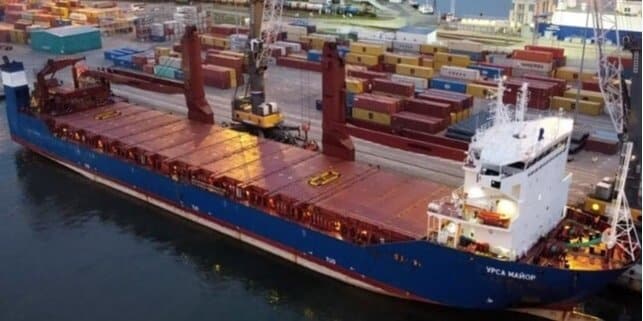Sanctioned Russian vessel with key cargo lost in Mediterranean disaster

The maritime world faced another tragedy as the Russian bulk carrier Ursa Major sank in the western Mediterranean Sea. This incident occurred after a catastrophic explosion in the ship’s engine room. The news was first reported by the Spanish newspaper La Verdad on December 23. The Ursa Major, a vessel with a deadweight tonnage of 9,500, was en route from St. Petersburg to Vladivostok when disaster struck. The ship was sailing in international waters near the Spanish ports of Aguilas and Oran.
Incident Details and Rescue Efforts
The explosion in the engine room caused the Ursa Major to roll violently, leading to its eventual sinking. The ship had a crew of 16 members at the time of the incident. Fortunately, the Maritime Rescue Service acted quickly, rescuing 14 crew members and bringing them safely to the port of Cartagena late on December 23. However, two crew members remain missing, raising concerns about their fate.
The Ursa Major was operated by a subsidiary of Oboronlogistika, a Russian defense company that is currently under sanctions. The company stated that the vessel was carrying essential cargo for state projects aimed at developing port infrastructure and the Northern Sea Route. This cargo included two Liebherr mobile cranes, which are crucial for operations at the port of Vladivostok. The port is currently facing severe overload due to a shortage of cranes. Additionally, the ship was transporting two 45-ton hatches intended for the construction of a new nuclear icebreaker, Project 10510. The loss of this cargo is expected to cause significant delays in both loading and unloading operations in Vladivostok and the ongoing construction of the icebreaker.
Broader Implications and Recent Maritime Incidents
The sinking of the Ursa Major is not an isolated incident. Just days earlier, on December 15, two Russian tankers, Volgoneft-212 and Volgoneft-239, sank in the Kerch Strait. These vessels were capable of carrying up to 5,000 tons of oil products, and their sinking has led to an environmental disaster affecting the Black Sea and the Sea of Azov. The situation has raised alarms among environmentalists and maritime authorities, who are concerned about the potential ecological impact.
On the same day as the tankers’ sinking, reports emerged of a Russian floating crane ship in distress off the coast of temporarily occupied Yalta. These incidents highlight ongoing challenges in maritime safety and the risks associated with aging vessels and operational pressures. As investigations into the Ursa Major incident continue, the maritime community remains vigilant about safety protocols and the environmental implications of such disasters.
